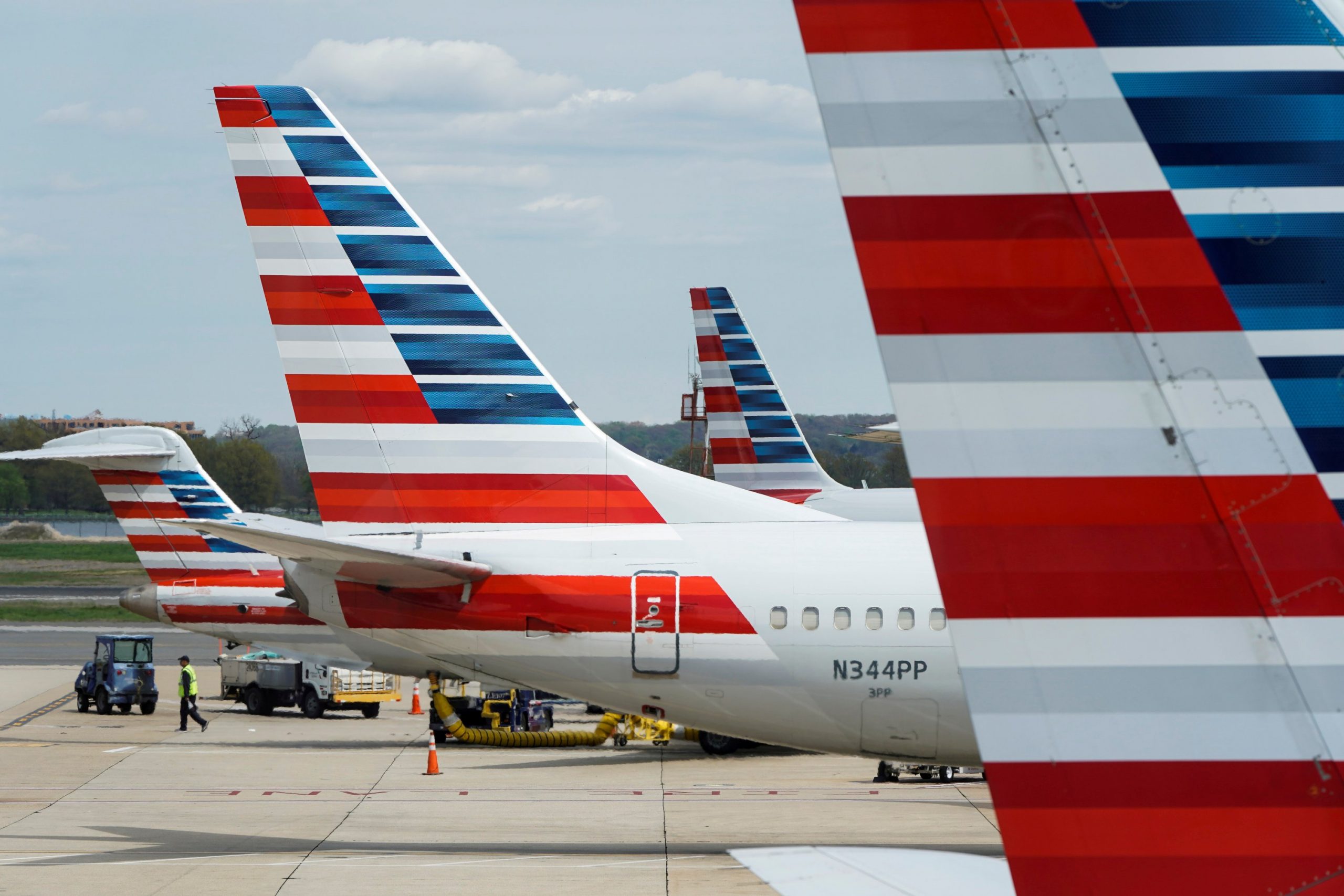American Airlines reported a staggering loss of $2.24 billion for the first quarter, when the coronavirus pandemic triggered a sharp drop in air travel.
The airline said Thursday that revenue fell 19% while costs continued to rise even as the virus spread.
The situation facing the airline industry has grown more dire since the first quarter ended. Air travel within the United States has plunged 95% from a year ago, judging by the number of people screened at the nation’s airports.
“Never before has our airline, or our industry, faced such a significant challenge,” Chairman and CEO Doug Parker said.
American’s massive loss compared with a profit of $185 million in the same quarter last year. It was American’s largest quarterly loss since merging with U.S. Airways in 2013.
American said that adjusted for non-recurring items, it lost $2.65 per share. That was worse than the average forecast of a $2.08 per share loss from 15 analysts surveyed by FactSet.
Shares of American Airlines Group Inc. dropped nearly 11% before a partial rebound; they were down about 4% by midmorning.
Parker highlighted American’s efforts to bolster its liquidity – building up enough cash, it hopes, to ride out the pandemic – including getting $5.8 billion in federal aid to help cover payroll costs through September.
American estimated that it ended March with $6.8 billion in cash and other liquidity, including $2 billion that it raised during the first quarter, and will have $11 billion at the end of June.
The airline has applied for another $4.75 billion in loans from the Treasury Department at around 4% interest. The loans must be secured, and airline executives did not rule out using American’s AAdvantage loyalty program as collateral, although negotiations are continuing.
The federal aid will help American keep flying and avoid layoffs at least until October. However, it won’t help American generate revenue by selling tickets instead of paying refunds to customers who are canceling trips.
Industry-wide, revenue has fallen about 95% from last April, Parker said on a call with analysts. “And while no one has a perfect crystal ball, I think we all expect that recovery will be slow and demand for air travel will be suppressed for quite some time,” he added.
The Fort Worth, Texas-based airline has cut its flying schedule by 80% in April and May and 70% in June. It has grounded hundreds of planes, retiring some of them permanently. About 4,500 workers have taken early retirement, and about another 34,000 have accepted partially paid leave or fewer hours of work. Some of those taking leave couldn’t find child care.
Cheaper fuel caused by the collapse in energy prices will contribute to a reduction of more than $12 billion in its 2020 spending, the airline said.
In all, the company expects to cut its rate of burning cash from $70 million a day to $50 million a day by the end of June.
Helane Becker, an airlines analyst for financial-services firm Cowen, said American’s moves to cut capacity and retire planes are important, “but there needs to be an additional sense of urgency given the state of demand and the expected slow recovery.”
American’s loss dwarfed the $534 million loss reported last week by Delta Air Lines, which is slightly larger by revenue, and a $94 million loss posted by Southwest Airlines. United Airlines was scheduled to issue first-quarter figures later Thursday.










Discussion about this post